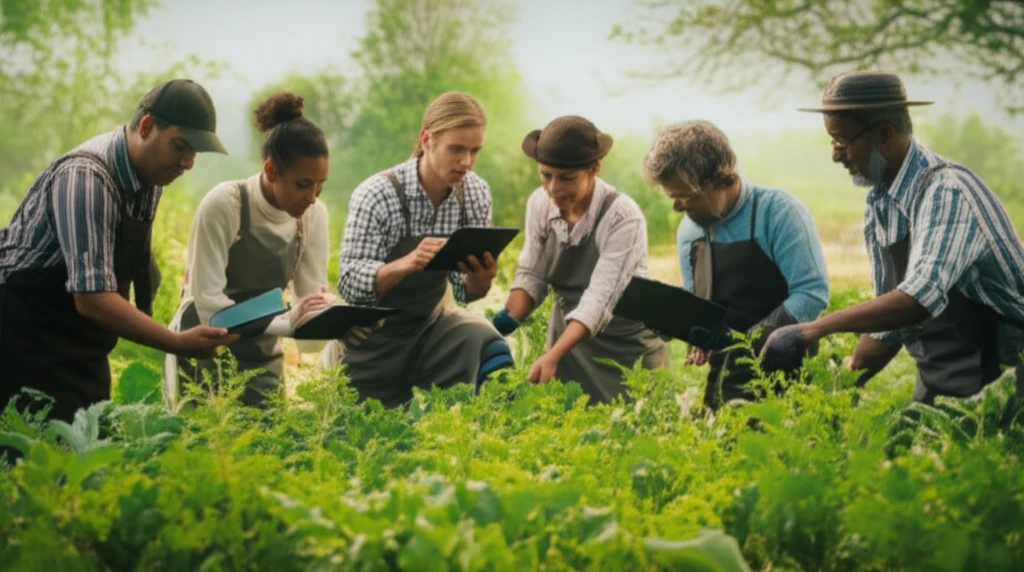
Unlock Bumper Harvests: The Modern Farmer's Guide to Knowledge Exchange
"How collaborative learning and digital tools are revolutionizing organic arable farming across Europe."
Organic farming is a knowledge-intensive endeavor. To thrive, farmers need continuous access to the latest research, innovative techniques, and proven best practices. While traditional methods of knowledge sharing have served the agricultural community for generations, the rise of the internet and information technologies has opened up exciting new possibilities for collaboration and learning.
A groundbreaking initiative, the OK-Net Arable project, brought together farmers, researchers, and advisors from across Europe to explore how online knowledge exchange can be optimized to improve organic arable production. This multi-actor project focused on identifying the most effective tools and strategies for sharing information, fostering innovation, and ultimately boosting yields in organic farming systems.
By evaluating a range of knowledge exchange tools, including technical guides, videos, and websites, the OK-Net Arable project has provided valuable insights into what works best for farmers seeking to enhance their knowledge and improve their practices. The project's findings highlight the importance of farmer-to-farmer knowledge sharing, the value of visual information, and the need for tools that are tailored to specific contexts and farming systems.
What Makes Knowledge Exchange Effective? Key Insights from European Farmers

The OK-Net Arable project involved Farmer Innovation Groups from ten European countries, representing a diverse range of farm types and sizes. Through workshops, on-farm trials, and exchange visits, these groups evaluated a variety of knowledge exchange tools and shared their experiences with different practices. This collaborative approach revealed several key factors that contribute to effective knowledge exchange:
- Real-World Relevance: Farmers value tools that are grounded in the practical experiences of other farmers. Case studies, farmer profiles, and tips from those who have already tried a particular practice are highly appreciated.
- Context Matters: Generic information often falls short. Farmers need tools that provide insights into how a practice has performed in different contexts, including varying soil types, climates, and farming systems.
- Honesty is the Best Policy: Tools that present an unbiased view of a practice, including both its benefits and potential drawbacks, are more likely to be trusted and used.
- Easy to Navigate: User-friendly interfaces, clear language, and well-organized content are essential for busy farmers who need to find information quickly and easily.
- Numbers Tell a Story: Data on yields, economics, and seed rates help farmers to assess the potential impact of a practice on their own farms.
The Future of Farming: Embracing Collaboration and Innovation
The OK-Net Arable project demonstrates the power of knowledge exchange and collaboration in driving innovation and improving organic arable farming practices. By embracing digital tools, fostering farmer-to-farmer learning, and tailoring information to specific contexts, we can empower farmers to make informed decisions, optimize their practices, and create more sustainable and resilient agricultural systems. The future of farming depends on our ability to share knowledge, learn from each other, and adapt to the ever-changing challenges of the 21st century.
